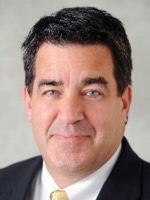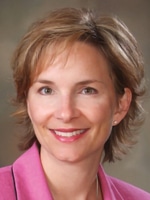August 2021—From critical to worse is how two Compass Group members described the lab labor shortage on July 6 when the group spoke with CAP TODAY publisher Bob McGonnagle in another of their monthly virtual meetings. “Things imploded. We’re struggling in every area,” said one. Others have similar stories and shared what they’re doing in response. “We now have a full-court press,” said another.
That and more—surprise billing, laboratory-developed tests—were what they and McGonnagle talked about. Here is what they had to say.
The Compass Group is an organization of not-for-profit IDN system laboratory leaders who collaborate to identify and share best practices and strategies.
The Biden administration is putting out the first regulatory guidance about surprise medical billing, which is a concern to all and particularly those who have active independent pathology groups. From the looks of it, the intention from a regulatory basis is to make it virtually impossible to have any differential for out-of-network fees or ancillary services, and that could be harmful to those who are outside of systems. Steve Carroll, what have you heard?
Steven Carroll, MD, PhD, chair, Department of Pathology and Laboratory Medicine, Medical University of South Carolina: It is definitely hitting our radar here, and it’s causing a lot of concern. Our financial people are worried about how it will impact us, although the scenarios in which they think it’s going to impact us are a bit vague.
How serious could this be?
Dr. Carroll (MUSC): They don’t know exactly how serious it’s going to be. We’re sort of in the midst of a transition state. We recently purchased four new hospitals. We are about to close a deal to purchase four more, and we’re going to provide pathology services there. The shape that will take is yet to be determined, and that’s why they can’t give me anything definitive about how they think it’s going to impact us. The caution and concern are probably merited, but what form the damage will take isn’t clear yet.
Stan Schofield, are you seeing anything at NorDx?
Stan Schofield, president, NorDx, and senior VP, MaineHealth: There is community and public awareness and complaints are being filed, but there’s not yet what I would call a critical mass around here to get people excited or terribly concerned about surprise billing or secondary billing. Nobody wants it, and the legislature just adjourned, and they didn’t address anything around surprise medical billing. They’re still working on transparency issues.
As COVID-19 ebbs, what worries are returning?
Stan Schofield (MaineHealth): It’s still about staffing. For 10 years, staffing has been kind of sensitive. The past two years it has been a critical situation, and now it’s like a meltdown. Long-term people are hanging it up and saying, “I’m done.” We’re going to come up with a major wage package next month.
Janet Durham, are you dealing with the same in the Chicago area and Wisconsin?
Janet Durham, MD, medical director, Wisconsin operations, ACL Laboratories, and president, Great Lakes Pathologists, West Allis, Wis.: Yes, it’s a struggle. More people are deciding they want to retire, and for others it’s a question of which facility they are going to work for and where they can get the better wage.
Sterling Bennett, MD, MS, senior medical director, pathology and laboratory medicine, Intermountain Healthcare, Salt Lake City: The labor shortage seems to be affecting nearly every industry. We’re seeing sign-on bonuses for fast-food restaurants, a raise in pay if you refer someone to work at McDonald’s. Everybody’s dealing with it, and health care systems in general have been slow to respond to the marketplace. It could take us a while to catch up relative to other industries to which our frontline, on-the-job-trained employees could go.
We all realize there are no magic bullets for this one. The wage increases that Stan referred to will be a big piece of change.
Stan Schofield (MaineHealth): It’s tough to face and tough to afford. We have PAMA cuts coming down in January again, at least at the moment, and if you look over the past six years, we’re down almost 50 percent in revenue. And in the last two years or three years we’re up 20 percent for technical staff raises and retentions. And it’s not going to change. People are not coming into the field, and those who are coming in aren’t staying long because they can go out and become a consultant or work for Epic and make a lot more money.
Most of you have your main campuses, your main hospitals with hundreds of beds, and you also have smaller hospitals, clinics, doctors’ offices, staffed emergency departments, et cetera. When you have such a mix of centers of testing, and then a labor shortage on top of it, do you worry about consistency in lab testing quality? Sterling Bennett, I know Intermountain can be quite far-flung in Utah.
Dr. Bennett (Intermountain): Yes, and the size and complexity of the facilities vary dramatically. We have hospitals with fewer than 20 beds, for example, and in terms of concerns about the quality of the testing, the smaller facilities probably have more consistency right now than the larger facilities in that people have chosen to go to the small communities because they want to live there. They want that lifestyle. The turnover is much lower than in our urban centers where we do have more concern about the turnover we’re seeing and the proportion of employees who’ve been on the job for a short time. Experience matters.

Bull
Tony Bull, you’re in incredible competition for good people. Tell us about your labor situation in Orlando now.
Tony Bull, executive director, AdventHealth, Orlando, Fla.: It tracks with what everyone else is sharing, and adding complication for us is that we’re transitioning now to Epic and our rate of retirements has gone up quite a bit. And our turnover rate has never been higher than it is right now for our nonlicensed employees—laboratory assistants and others. That can be competition from other industries, other factors we’re all reading about, but that’s been a real challenge. And I’d even say it’s new hires where we’re seeing the highest turnover—people who’ve come into this field and then leave for something else. We brought in a group of lab techs from the Philippines and so far it’s going well, but that’s an indication of how hard we’re having to work to find qualified people.
How do you respond to my earlier question about maintaining consistent quality across a diverse, distributed network of testing, where you have expertise in critical areas and central laboratories, pathology, advanced infectious disease, and then you’re all over the place with clinics, doctors’ offices, et cetera? Do you worry about consistency of quality?
Tony Bull (AdventHealth): In terms of our laboratories, I don’t worry. The quality in the laboratories is consistently high. We communicate and work with each other, so if there’s expertise at one place that is needed at another, we do a good job of sharing information. I do worry a little about physician offices and some of the other service locations, and in a lot of ways it’s sort of like herding cats. You have people who aren’t familiar with all the processes—they don’t do it as frequently—so there’s more opportunity for problems with those sites. We just have to remain vigilant. It takes a lot of work.
Cindi Starkey, give us a report from Tulsa.
Cindi Starkey, MD, PhD, medical director, hematopathology, Pathology Laboratory Associates, Regional Medical Laboratory, Tulsa, Okla.: We’ve had a struggle with the labor force as well, and I agree that the turnover is both people opting to retire now—particularly with the pandemic, if they reach that age, they say, “This is too much. We’re done. We’re going to go ahead and retire,” rather than continue—and then the new hires, who will be onboarded, trained, get bonuses, and jump to another facility. We see a lot of moving around to other facilities in our neighborhood.

Dr. Starkey
What is Regional Medical’s experience with worries about consistency of quality testing regardless of site?
Dr. Starkey (Regional Medical): There isn’t much concern about inconsistencies in quality among our laboratories. We oversee a lot of it. We do have a lot of inexperienced new technicians, but we have a safety net with all of our systems in that staff can forward questions to the more experienced centers and our core laboratories, and that seems to help a lot.
Darlene Cloutier, what is Baystate’s experience?
Darlene Cloutier, MSM, MT(ASCP), HP, director of laboratory operations, Baystate Health, Springfield, Mass.: We have the same challenges, and off-shift help is an extreme challenge for us, because we either have people working on the night shift who can go to another facility where they can work on a day or evening shift, so they leave the organization, or people who will move to another shift within our organization. And with regard to growth, we are definitely challenged in our more manual laboratories like our histology section, where retaining and recruiting PAs and histotechs has been difficult. To support growth, you need to have the staff in place.
I’m told that wherever Amazon puts up one of its distribution centers, the labor is taken from the surrounding businesses, and I’m assuming that may take some people out of health care as well.
Darlene Cloutier (Baystate): Yes, especially the lab assistant or phlebotomy level candidates.
Dan Ingemansen, have you experienced this?
Dan Ingemansen, senior director, Sanford Health, Sioux Falls, SD: We serve the Upper Midwest, and they’re establishing two distribution centers—one in Fargo, North Dakota, and another in Sioux Falls, South Dakota. Each facility will bring about 1,000 jobs per community. Across the board we’re going to compete for employees in an already difficult labor environment.
 CAP TODAY Pathology/Laboratory Medicine/Laboratory Management
CAP TODAY Pathology/Laboratory Medicine/Laboratory Management
